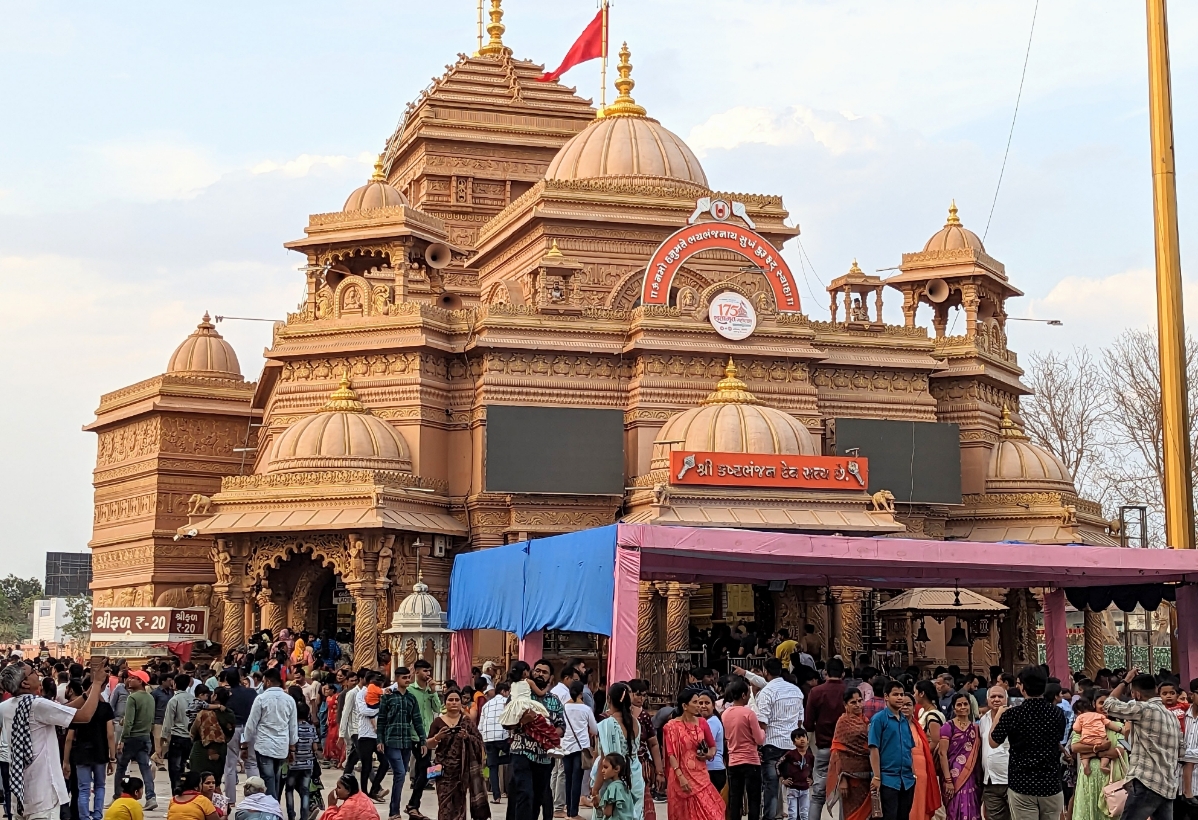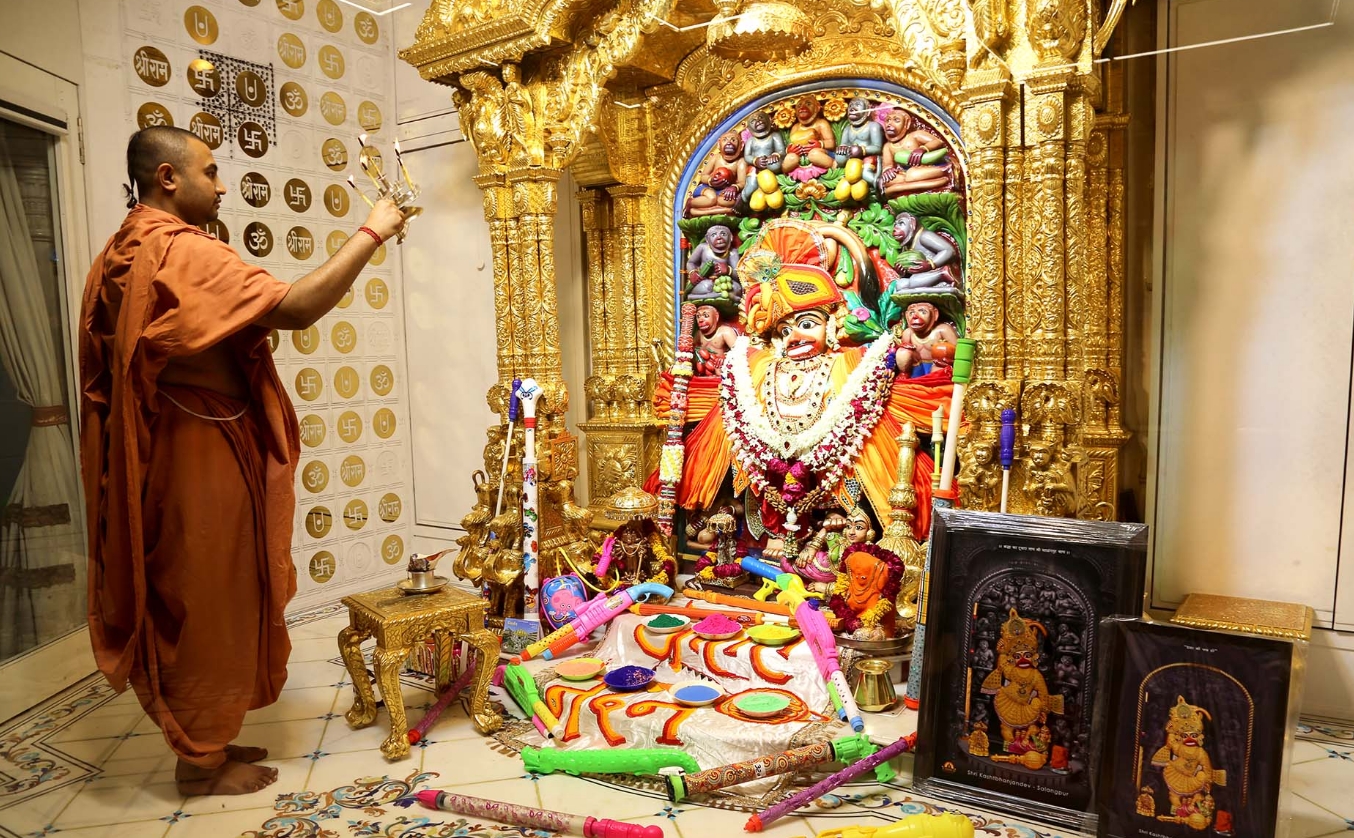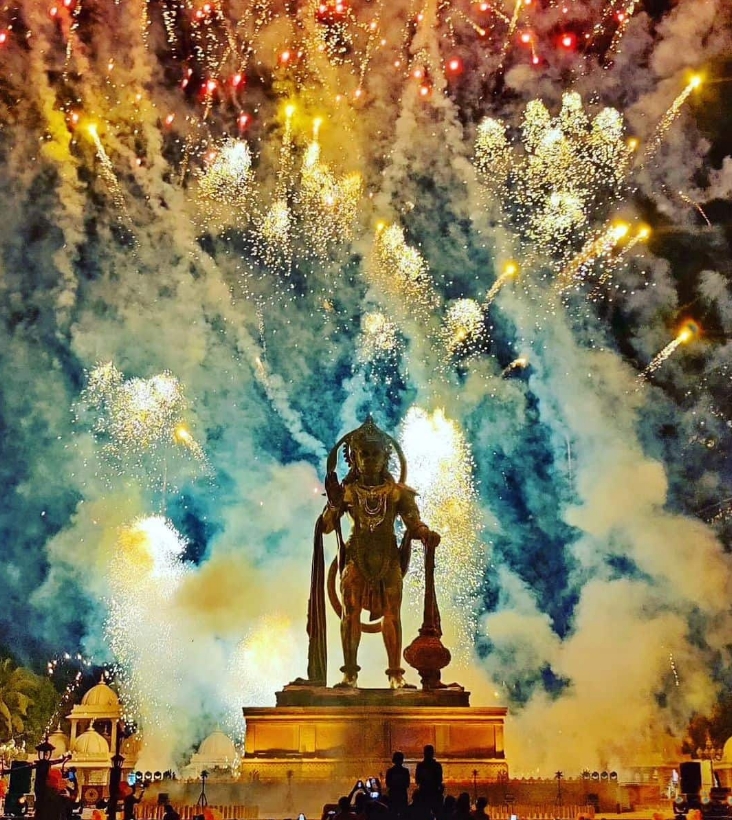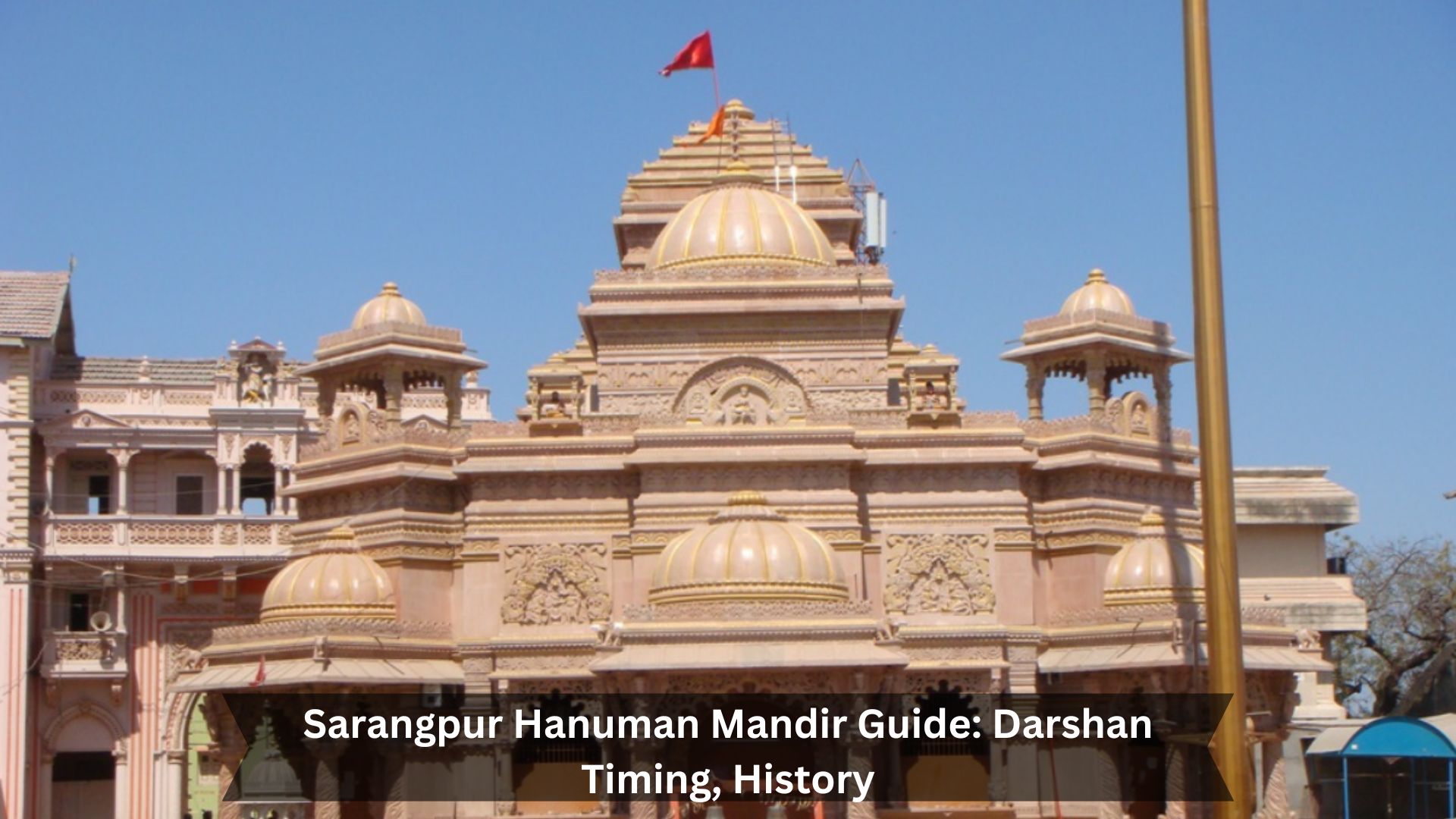Key Takeaways
- You can visit Sarangpur Hanuman Temple every day from 6:00 AM to 02:00 PM and then again from 4:00 PM to 9:00 PM.
- The temple showcases a mix of traditional Gujarati and modern architectural designs, featuring classic domed roofs and intricate pillars.
- Gopalanand Swamy founded this temple, which is dedicated to Lord Hanuman. Here, Lord Hanuman represents the Rudra Avatar of Lord Shiva.
- Major events here include Hanuman Jayanti and Sundar Kand readings. These draw large crowds from across the country for spiritual events.
- Situated in the Botad district of Gujarat, this temple is famous for its spiritual healing and exorcism rituals.
Located in Gujarat’s Botad district, the Sarangpur Hanuman Mandir is essential for spiritual seekers. It’s dedicated to Lord Hanuman and is famous for its idol, Kashtbhanjan Dev. This idol represents the Rudra Avatar of Lord Shiva from ancient times.
Gopalanand Swamy, a key follower of Swaminarayan, founded the temple. It’s a spot for both worship and spiritual healing, especially for those dealing with mental troubles and negative vibes. There’s also a fascinating tale about the idol. When Gopalanand Swamy was setting it up, it’s said to have moved on its own.
Sarangpur Hanuman Temple Timings and Aarti Details
Darshan timings

Understanding the Darshan timings and Aarti schedules at Sarangpur Hanuman Temple helps you plan your visit better. The temple is open daily and welcomes visitors for Darshan from 6:00 AM to 02:00 PM and from 4:00 PM to 9:00 PM. You can visit in the busy morning or the quiet evening.
| Category | Details |
|---|---|
| Temple Timings (Darshan) | 6:00 am to 2:00 pm, 4:00 pm to 9:00 pm |
| Prasadam Timings (Annadanam) | 1:00 pm to 3:00 pm |
| Pooja Timings | 8:00 am to 9:00 am |
| Time Taken for Darshan | 1-2 hours |
| Entry Fee | Free |
| Best Month To Visit | August to March |
| Traditional Dress Code | Men: Dhoti, No shirt. Women: Saree |
| Poojas That are performed | Annadanam, Vastra Samarpana |
| Nearest City | Botad |
The temple closes in the afternoon. During this time, you can explore nearby areas or take a break.Stick to these times to make the most of your visit and connect with the rituals dedicated to Lord Hanuman.
Aarti timings
| Days | Aarti/ Puja Timings |
|---|---|
| Sunday | 5:30 AM |
| Monday | 5:30 AM |
| Tuesday | 5:30 AM |
| Wednesday | 5:30 AM |
| Thursday | 5:30 AM |
| Friday | 5:30 AM |
| Saturday | 5:30 AM |
| Temple Darshan | Time-Table |
|---|---|
| Mangla Aarti | 5:30 AM |
| Bal Bhog (Darshan closed) | 6:30 AM to 7:30 AM |
| Shangar Aarti (only on Saturday and Tuesday) | 7:00 AM |
| Rajbhog Thal (Darshan closed) | 10:30 AM to 11:00 AM |
| Sandhya Aarti | 6:15 PM |

The Aarti schedule at Sarangpur Hanuman Temple is simple, designed to help devotees connect with spirituality throughout the day. The day kicks off with the Mangla Aarti at 5:30 AM. This early morning ritual starts the day on a spiritual note.
| Days | Closing Time (afternoon) | Closing Time (night) |
|---|---|---|
| Monday | 1-3 PM | 11:00:00 PM |
| Tuesday | remains open | 2:00 AM (night) |
| Wednesday | 1-3 PM | 11:00:00 PM |
| Thursday | 1-3 PM | 11:00:00 PM |
| Friday | 1-3 PM | 11:00:00 PM |
| Saturday | remains open | remains open the whole night |
| Sunday | 1-3 PM | 11:00:00 PM |
Then, on Tuesdays and Thursdays, there’s the Shangar Aarti at 7:00 AM, where devotees can see Lord Hanuman being adorned. The Rajbhog Aarti at 10:30 AM is next, where food is offered to the deity.
The evening winds down with the Sandhya Aarti, and the day wraps up with the Shayan Aarti. This schedule gives everyone plenty of chances to join in and pray throughout the day.
Food timings
| Bhojan | Timings |
|---|---|
| Breakfast | 8:00 AM to 10:00 AM |
| Lunch | 12:00 PM to 2:00 PM |
| Dinner | 7:30 PM to 9:00 PM |
Visitors to Sarangpur Hanuman Temple can enjoy complimentary meals served at set times each day. This schedule matches the temple’s religious activities. Everyone is welcome to eat, no matter their background, which lets everyone feel the blessings of Lord Hanuman through good food.
Meals are provided right after specific prayer services — lunch follows the midday Rajbhog Aarti and dinner after the evening Sandhya Aarti. This setup helps manage the flow of people and makes the mealtime part of the spiritual journey. It’s a chance for everyone to eat together in a peaceful and sacred place.
History and Significance of Sarangpur Hanuman Temple
Architectural style
Built in 1899, Shri Sarangpur Hanuman Mandir is a striking blend of old Gujarati style and modern design. The temple features classic domed roofs and beautifully detailed pillars typical of Gujarati architecture. These traditional elements mix smoothly with newer, contemporary touches, creating a peaceful yet impressive setting.
The large courtyard and the tall spire that stands out against the sky are especially notable. They are designed to make you look up and feel a sense of wonder and respect.
This mix of old and new celebrates Gujarat’s rich cultural history and highlights the temple’s importance in both a religious and architectural sense. It’s a key spot for both devotion and architectural appreciation.
Festival celebrations

Celebrations at Sarangpur Hanuman Temple, including Hanuman Jayanti and Sundar Kand readings, are profoundly spiritual and draw people from all over the country. These events really show the temple’s cultural and religious importance.
Hanuman Jayanti celebrates Lord Hanuman’s birthday with extensive rituals and colorful parades, attracting folks who come to ask for bravery and protection. The Sundar Kand, part of the epic Ramayana, is also read with passion, helping people find spiritual clarity and satisfaction.
These celebrations do more than just boost the faith of those who attend; they also strengthen the temple’s position as an essential spiritual center, promoting both community togetherness and spiritual growth.
Conclusion
In conclusion, the Sarangpur Hanuman Mandir is a powerful place for both spiritual healing and cultural richness. It draws people from every background, allowing them to experience its sacred atmosphere and deep history.
Founded in the 19th century and shaped by the spiritual work of Gopalanand Swami, this temple is more than just a place of worship. It provides comfort and a refuge for those seeking relief from their troubles. The temple is known for its unique exorcism ritual, highlighting its significant role in improving spiritual wellness. Whether it’s through the rhythmic chanting of the Hanuman Chalisa or the holy aartis, the temple continues to be a vital source of strength and insight.

Deepak Sharma is a passionate writer and avid traveler who specializes in uncovering the beauty and history of India’s attractions and temples. A graduate of Delhi University, Deepak has a deep-rooted love for his country and its rich cultural heritage.
